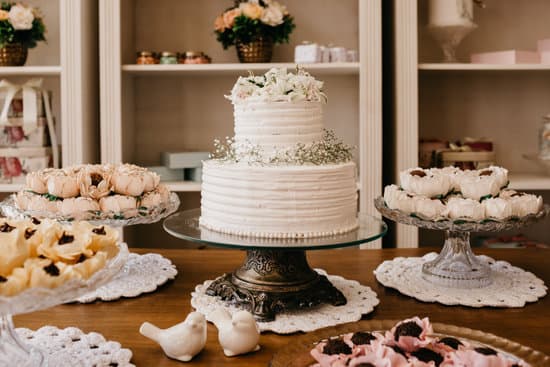Have you ever wondered, “What time do weddings usually start?” The start time of a wedding can set the tone for the entire event, influencing everything from the mood of the ceremony to the flow of the reception. In this article, we will explore the significance of wedding start times and how they impact the overall experience for both couples and their guests.
The timing of a wedding holds great importance, not just as a logistical consideration but also as a reflection of tradition and culture. From morning ceremonies to evening celebrations, each start time has its own unique implications and effects on the day. Understanding these nuances can help couples make informed decisions when planning their special day.
In addition to examining traditional start times, we will also delve into factors that may influence when weddings begin, such as location, season, and cultural customs. By considering these influences, couples can gain insight into how to best choose a start time that aligns with their vision for the celebration.
So whether you’re an early riser dreaming of a sunrise ceremony or a night owl envisioning an evening affair, this article will guide you through the decision-making process to help you choose the perfect start time for your wedding.
The Traditional Start Time
The start time of a wedding holds significant historical and cultural importance in many societies. Understanding the traditional start times can provide insight into the reasoning behind these customs and help couples make informed decisions when planning their special day. Here are some traditional wedding start times from around the world:
- In England, it was customary for weddings to take place at high noon. This time was preferred as it allowed for the festivities to continue into the evening without interfering with daily tasks.
- In India, weddings are often scheduled during specific astrological alignments, which can result in early morning or late evening ceremonies. The timing is believed to bring good luck and harmony to the couple’s union.
- In many parts of Latin America, weddings start in the late afternoon or early evening to avoid the heat of the day. This allows for a comfortable celebration and brings a sense of festivity as night falls.
Understanding these traditional start times can provide insight into what time do weddings usually start and can help couples decide on a starting time that aligns with their cultural background or personal preferences. As modern weddings become more diverse, there is flexibility in choosing a traditional start time that best suits the couple’s needs while also honoring important customs.
Factors such as location, season, and cultural customs play a vital role in determining wedding start times. Couples should carefully consider these factors when setting their wedding schedule to ensure that their chosen start time reflects their vision for the day while also accommodating logistical and practical considerations. Flexibility and creativity play an essential role in finding alternatives that resonate with modern couples who may want to break away from tradition while still honoring its significance.
Afternoon Weddings
When it comes to weddings, afternoon ceremonies are a popular choice for many couples. Typically, afternoon weddings start between 1:00 PM and 4:00 PM. This timing allows for a perfect balance between daylight and evening hours, giving couples the flexibility to plan their ceremony and reception without feeling rushed or having to end the celebration too early.
One of the main reasons why afternoon weddings are favored by many couples is the flexibility they offer. With an afternoon start time, couples have the option to host both an outdoor ceremony and an indoor reception, or vice versa. The natural lighting during this time of day also provides great opportunities for wedding photos, as the sun is not too harsh and casts a warm glow.
Another advantage of an afternoon wedding start time is that it allows guests who may be traveling from out of town to arrive with plenty of time before the ceremony begins. This can alleviate stress for both the couple and their guests, ensuring that everyone is able to fully enjoy the celebration without feeling rushed or exhausted from a long day of travel.
| Advantages | Description |
|---|---|
| Flexibility | Afternoon weddings offer flexibility in terms of planning both outdoor and indoor events. |
| Guest Arrival | Guests traveling from out of town have ample time to arrive before the ceremony. |
| Natural Lighting | The soft natural lighting during afternoons provides a beautiful backdrop for photos. |
Evening Weddings
One of the key advantages of having an evening wedding is the opportunity to host a formal sit-down dinner or a lavish cocktail reception. The later start time allows guests to arrive after work and truly unwind and enjoy the festivities. Additionally, an evening wedding often provides the perfect backdrop for stunning outdoor ceremonies, with the romantic glow of twilight adding an extra touch of magic to the occasion.
On the other hand, one potential drawback with evening weddings is that they can be more expensive than morning or afternoon events due to the increased demand for evening venues and vendors. Moreover, some guests may find it challenging to attend an evening affair if they have young children or if they have other commitments earlier in the day.
Despite these potential drawbacks, many couples are still drawn to the allure of an evening wedding start time for its timeless elegance and enchanting atmosphere.
Overall, while there are pros and cons to choosing an evening wedding start time, it remains a popular choice for couples who want to create a memorable and sophisticated event. Whether it’s exchanging vows at sunset or dancing under the stars, an evening wedding offers a sense of grandeur that is hard to rival.
Factors Affecting Start Times
When it comes to setting the start time for a wedding, several key factors can influence the decision-making process. These factors play a crucial role in determining when the ceremony and reception will take place, and they can have a significant impact on the overall flow of the event.
Location
The location of the wedding venue is an important consideration when determining the start time for the event. For example, if the wedding is taking place in a tropical destination with hot temperatures, couples may opt for an evening start time to avoid the heat of the day. On the other hand, if the venue is in a picturesque outdoor setting, a morning or afternoon start time may be preferred to take advantage of natural light for stunning photographs.
Season
The season in which the wedding takes place also influences the start time. In warmer months, couples may choose to have an evening wedding to take advantage of cooler temperatures later in the day. Alternatively, during winter months with shorter daylight hours, afternoon weddings are popular to ensure that there is still ample natural light for outdoor ceremonies and photos.
Cultural Customs
Cultural customs and traditions can also play a significant role in determining when weddings start. For example, some cultures have specific auspicious times for couples to exchange vows, which may dictate whether a wedding takes place in the morning, afternoon, or evening. Understanding and respecting these cultural customs is essential when planning a wedding that honors familial traditions.
As couples navigate through these influential factors, they must carefully consider how each one will impact their special day. By taking into account location, season, and cultural customs when deciding on a start time for their wedding, couples can ensure that their event flows seamlessly and creates cherished memories for themselves and their guests alike.
Flexibility and Alternatives
When it comes to wedding start times, flexibility and creativity can play a significant role in shaping the overall experience for couples and their guests. While traditional morning, afternoon, and evening start times are popular choices, there are also alternative options that allow couples to think outside the box when planning their special day.
Brunch Weddings
One creative alternative to traditional wedding start times is hosting a brunch wedding. This option allows couples to celebrate their love in a unique and unexpected way. Brunch weddings typically start in the late morning or early afternoon, offering a relaxed and intimate atmosphere for both the couple and their guests. With a brunch wedding, couples can incorporate fun elements such as mimosa bars, breakfast-themed menus, and daytime entertainment, making it a memorable experience for everyone involved.
Sunset Weddings
For couples who want to capture the magic of twilight, a sunset wedding can be an enchanting choice. Starting just before dusk, a sunset wedding provides a romantic backdrop for exchanging vows and celebrating love. The warm glow of the setting sun creates a stunning ambiance that adds an extra touch of romance to the occasion. Additionally, sunset weddings offer unique opportunities for breathtaking photos that capture the beauty of natural light during golden hour.
Destination Weddings
Another option that allows for flexibility in wedding start times is opting for a destination wedding. Couples who choose to tie the knot at a remote or exotic location can tailor their start time to fit the local customs or natural elements such as sunrise or sunset. Destination weddings provide an opportunity for couples to create an unforgettable experience not only with their chosen location but also with the timing of their celebration.
By considering these alternative options for wedding start times, couples can add personal touches to their special day and create lasting memories for themselves and their loved ones. Whether it’s brunch, sunset, or destination weddings, thinking creatively about start times can elevate the overall experience and make it truly unforgettable.
Conclusion
In conclusion, the start time of a wedding is a crucial element that can greatly impact the overall experience for both the couple and their guests. Whether it’s a traditional morning ceremony, a popular afternoon affair, or an elegant evening celebration, the timing of the event sets the tone for the day and influences the atmosphere.
Understanding the historical significance of traditional start times, weighing the pros and cons of different options, and considering external factors such as location and cultural customs are all vital in making an informed decision.
It’s important for couples to carefully consider what time do weddings usually start in order to create a memorable and enjoyable experience for everyone involved. By being flexible and exploring alternative options, they can tailor their wedding start time to reflect their unique style and preferences, ensuring that it sets the stage for a truly special occasion.
Ultimately, choosing the right start time for a wedding can enhance the overall experience, creating cherished memories for the couple and leaving a lasting impression on their guests.
As couples plan their special day, they should take into account not only their own vision but also how their chosen start time will affect their loved ones. The right start time has the power to create an unforgettable ambiance that complements every aspect of the wedding day – from exchanging vows to dancing into the night.
With careful consideration and thoughtful planning, couples can ensure that their chosen start time contributes to an extraordinary celebration that will be remembered fondly by all in attendance.
Frequently Asked Questions
What Is a Normal Time to Start a Wedding?
A normal time to start a wedding is typically in the late morning or early afternoon, around 11am to 2pm. This allows for a full day of celebration and gives guests plenty of time to enjoy the festivities.
What Is the Most Popular Time of Day for a Wedding?
The most popular time of day for a wedding is in the late afternoon or early evening, usually between 4pm to 6pm. This timing allows for beautiful natural daylight for the ceremony and transitions into a romantic atmosphere as the sun sets during the reception.
What Is the 30 5 Minute Rule for Weddings?
The 30-5 minute rule for weddings suggests that ceremonies should start no more than 30 minutes after the stated time on the invitation, while receptions should begin within 5 minutes of guests arriving. This helps keep everything on schedule and shows consideration for guests’ time.

I have been involved in marriages for over 20 years helping couples and singles understand more about them.





